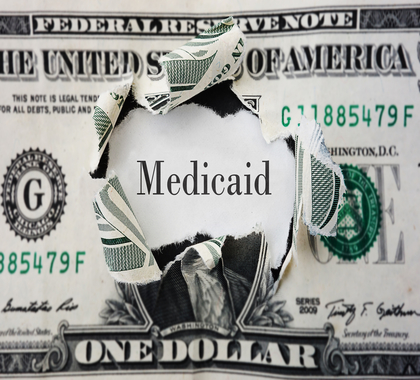Medicaid Expansion and the Louisiana Economy, from the Louisiana Department of Health (LDH), says expansion brought in $1.7 billion in new federal funding for fiscal years 2018 and 2019 and “supports approximately 14,000 jobs.” The report was released on the Friday before Labor Day. An April 2018 LDH forecast stated “a federal injection of just $1.85 billion created and supported almost 19,200 jobs.”
Pelican Institute Senior Fellow Chris Jacobs questions the methodology behind the 2018 report (see related commentary) and says although the 2019 report has more realistic numbers, it is still problematic.
“The researchers have yet to offer an explanation or a retraction of their inflated claims [or] answer the many questions about the circumstances surrounding these flawed studies,” Jacobs wrote on the institute’s website.
High and Rising
Louisiana state Sen. Conrad Appel (R-Metairie) says the natural growth of the Medicaid expansion program is very troubling and potentially devastating for Louisiana.
“The state’s cost for expansion is on autopilot, growing at nearly $100 million a year compounded,” said Appel. “It’s $100 million, the next year it’s $200 million, and the year after it’s $300 million and continues at this pace into the future.”
Appel says he worries what those figures would be like during an economic downturn, when enrollment will rise because of job losses and state revenues will decline because of unemployment.
“There’s no bailing out, and there will be no federal government to rescue us,” Appel said.
Calls It a Bad Deal
Appel says Gov. John Bel Edwards is to blame for not getting a better deal from the federal government.
“One of the terms any businessperson would have negotiated with the Obama administration is protection for the state in the event of a recession, but our governor didn’t do that,” Appel said. “So, we have a contract with the federal government to insure as many people that want to get onto Medicaid and are eligible forever and we’ve got to pay 10 percent forever.”
Louisiana’s Medicaid program has also been marred by fraud and abuse, says Appel.
“In the initial setup for expanding Medicaid, a number of people didn’t qualify because they didn’t meet the financial guidelines,” Appel said. “I think it was about 1,600 of them who actually made more than $100,000 per year, and they were put on the expansion rolls. Then they set up a new set of rules for eligibility and another group of people, I think it was 65,000, fell off for failure to report their income properly.”
Kenneth Artz ([email protected]) writes from Dallas, Texas.





